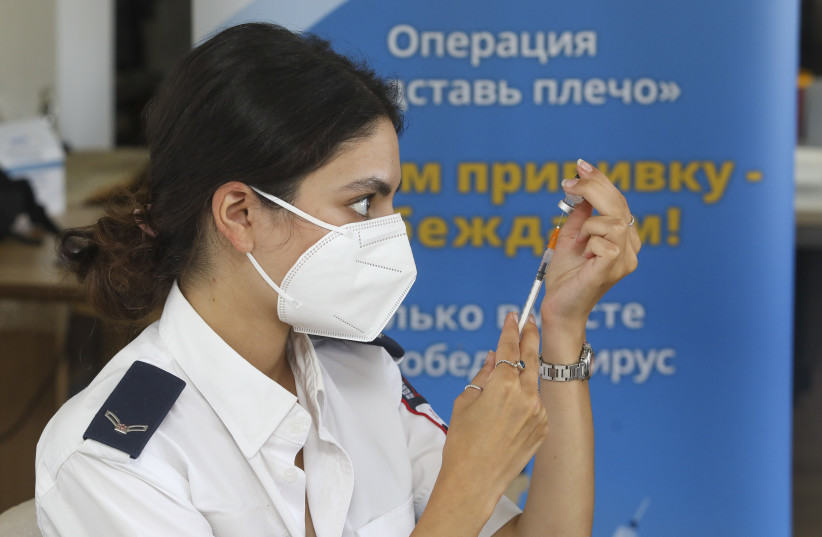Some 50% of Jewish Israelis said that knowing that their family’s holiday meals would include unvaccinated people could cause them to forgo the festivities, according to a survey released Wednesday by the Israel Democracy Institute.
Some 43% of Israelis said it would not affect their decision.
When segmenting respondents by age, those under the age of 44 were less likely to say they would skip their holiday meals, compared to those over the age of 45 – the majority of whom said that they would do so.
Only 77% of Israelis under the age of 50 have received at least one shot of the coronavirus vaccine, compared to 94% of older people, according to the Health Ministry.
The data were released as part of the monthly Israeli Voice Index, which looked at the outlook of Israelis ahead of Rosh Hashanah, which begins Monday at sundown.
The survey also focused on COVID-19 and issues surrounding vaccination, as Israel recently opened up a third shot to anyone over the age of 12.
Close to one-fourth (22.4%) of unvaccinated respondents said they were not against vaccination, but rather had simply “not gotten around” to getting the jab.
Less than one-third (29%) said that they were worried the vaccinations could cause health damage, and about a fifth (21%) said that they do not believe the vaccines help prevent infection.
Of the roughly 17% of Israelis who responded that they had not been vaccinated, 44% were under the age of 35, which aligns with national data, showing that the lowest rate of inoculation is among the younger population.

The public has not rated the new government’s handling of the pandemic much better than it rated the Netanyahu government in previous IDI surveys.
When asked, “What grade would you give the new government for its handling of the current wave of the COVID-19 pandemic?” – with one being poor and 10 being excellent – the average grade was 4.53.
More than one-third of respondents (39%) gave the government a poor mark (1-3), compared to only 16% that gave it a very good mark (8-10).
When segmenting responses by political camp, it seems that the Left and Center consider the new government to be doing better. Between 60% and 70% of Center-Left respondents ranked the government well, versus 22% on the Right.
What is the government doing wrong?
“The most widespread position is that the restrictions imposed on unvaccinated people are too light,” said Prof. Tamar Hermann and Dr. Or Anabi, who shared key findings from the index in a written analysis.
Nearly half (49%) of respondents thought the current government-imposed restrictions on unvaccinated people are too lenient, including 61% of people over the age of 55, and 55% of people between the ages of 35 and 54.
